The council house was spanking new.
My mum was thrilled with the indoor toilet
And plumbed-in bath.
Wanted too a tradesman’s entrance
Round the side.
“Don’t you know my husband’s a professional,” she said
In her special voice that made her sound
Like the queen at Christmas.
To the man who came to sell brushes door-to-door.
My dad swotted for engineering exams
At the kitchen table.
Late summer nights
Light shone still through my bedroom curtains.
I heard kids yelling in the street outside
And envied them.
My parents didn’t like me to play with
The “proles” because
I was not common like them.
A bogey-man lived at number eight.
You had to run fast past his door.
But no-one had ever seen him.
Digging to Australia with a plastic trowel -
Dirt in my finger nails and knots in my hair.
Collected insects in jars.
Earthworms baked in the sun to a crisp
When I forgot them.
Awoke with night terrors -
Big yellow eyes in the ceiling of my room
And the scream frozen in my throat.
There was hell to pay
If I got fingerprints on the furniture,
Mum’s paid-for-on-the-never-never
Georgian repro stuff.
Opened doors for my sister who didn’t
Want to crawl like other babies but
Shuffled on her bum.
My father read me Alice in Wonderland
And The Water Babies
(With Mrs. Doasyouwouldbedoneby and Mrs. Bedonebyasyoudid.)
Told me his stories of Malaya
Repairing bridges, rebuilding roads
R&R in Penang.
Playing Oranges and Lemons
In the road
(Chip chop the last man’s -).
And a ring game
One golden afternoon:
Simple Sally sitting on the sand.
My baby sis in the centre
Wearing a blue sunhat.
Speeding up and down the road on my scooter
Making neenaw police car noises.
Headquarters in a cardboard box.
Dad taught me to the trick of reading
One weekend.
I added the big words he used
To my store.
Hated frilly dresses
The feel of nylon party frocks
My favourite dress was brown and had fringing on the bodice
Like a Red Indian squaw.
We thought our washing had been stolen from the line
One morning.
Walked down to the phone booth with Dad
(Press Button A Button B)
To call the police.
Later found a neighbour
Had taken our clothes in at dawn
Because it looked like rain.
Watch With Mother
(Rag Tag and Bobtail, The Woodentops)
Was never
Watched with my mother
Who had a house to clean.
Riding on the upper deck of the bus to town
Turning over the Victorian pennies,
The Georges and Edwards in my father’s change.
Wondering at the strangeness of the past.
Told mum about next door’s dog
Enjoying bones I’d taken round.
“Licking her chops,” I said
Repeating my neighbour’s words.
Felt the full weight of her flailing fists
As she drove home her point:
“We speak proper English in this house.”
Dad walked me to school,
And at the gate wiped breakfast
From my mouth,
Cleaned sleep-encrusted eyes
With spit on his handkerchief.
One day when I refused to eat
Mum pushed my face down
Into my dinner
And mashed potato filled my nose.
Learned how to freeze time
One day
By as a simple effort of will.
Focused
Eyes shut
“I will always remember this moment.”
And have.
© Sharon Bakar 2005
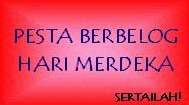
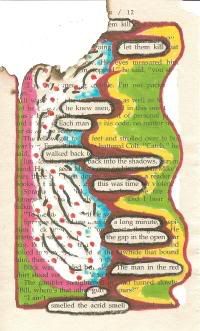


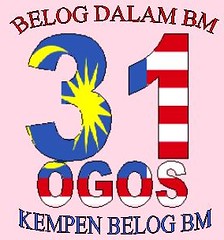
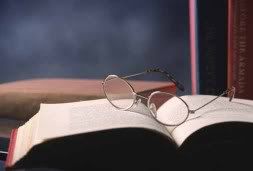







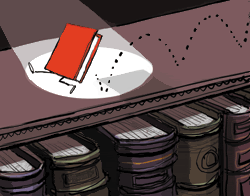
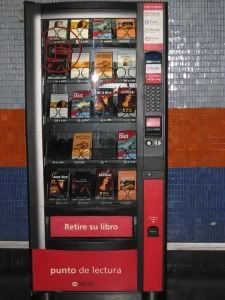 Germany is apparently rediscovering the book vending machine. A German publishing company decided to use this strategy a year ago to give their new unknown authors a chance to get noticed. Unfortunately the machines sell not only books, but food too so you get your book chilled along with your sandwich. How cool can you get!
Britain is also getting in on the act: book vending machines are being introduced onto platforms across the UK's rail network: a business venture by two well-connected entrepreneurs to
Germany is apparently rediscovering the book vending machine. A German publishing company decided to use this strategy a year ago to give their new unknown authors a chance to get noticed. Unfortunately the machines sell not only books, but food too so you get your book chilled along with your sandwich. How cool can you get!
Britain is also getting in on the act: book vending machines are being introduced onto platforms across the UK's rail network: a business venture by two well-connected entrepreneurs to 
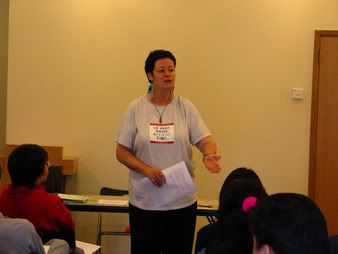


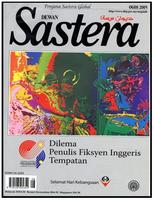







 he streets and open-air cafes are deserted. Shop doors firmly closed. Folks scuttle indoors as quickly as they can. The cautious ones wearing face masks.
he streets and open-air cafes are deserted. Shop doors firmly closed. Folks scuttle indoors as quickly as they can. The cautious ones wearing face masks.
